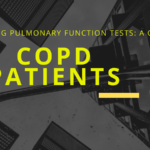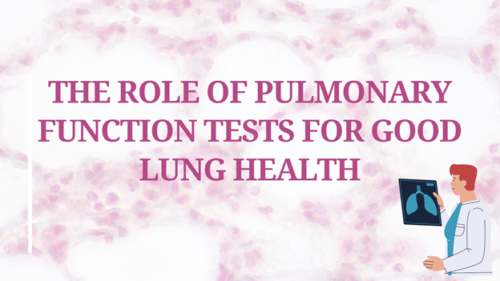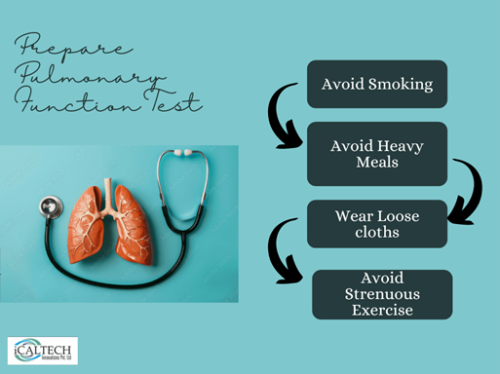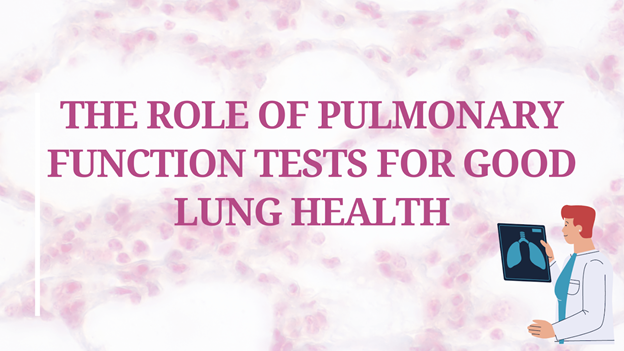
Mastering Pulmonary Function Tests: A Guide for COPD Patients
July 27, 2024
Why Lung Health Matters
September 6, 2024
the role of pulmonary function tests for good Lung health
Your lungs are an astonishing organ system that provides oxygen to your entire body. But how well do they function? Pulmonary function tests can reveal hidden mysteries about your lung health. In this detailed overview, we'll look at pulmonary function tests and how they might provide useful information about your respiratory system.
Whether you experience shortness of breath, a chronic lung illness, or simply want to monitor your lung health, pulmonary function tests can help identify and evaluate a variety of respiratory disorders. These tests are critical in diagnosing and controlling lung disorders such as asthma, chronic obstructive pulmonary disease (COPD), lung cancer, and pulmonary fibrosis.
Join us as we navigate through different types of pulmonary function tests: spirometry, lung volume tests, diffusing capacity tests, and more. We will explain how each test works, what it measures, and what the results mean for your lung health.
Don't let your lung health remain a mystery. Unlock the secrets of pulmonary function tests and take control of your respiratory impedance well-being today.
Importance of lung health
Your lungs are an integral part of your respiratory system and are necessary for your general health. They are in charge of absorbing oxygen and releasing carbon dioxide, which is critical for maintaining your body's gas balance. When your lungs are in peak condition, you may breathe freely, participate in physical activities, and live a fulfilling life.
However, environmental contaminants, smoking, and underlying medical disorders can all harm your lung health. Asthma, chronic obstructive pulmonary disease (COPD), lung cancer, and pulmonary fibrosis all have a major impact on respiratory function, causing symptoms such as shortness of breath, coughing, and wheezing. Monitoring your lung health through regular pulmonary function testing is critical for the early detection, effective management, and prevention of these respiratory issues.
Understanding the importance of lung health and the purpose of pulmonary function testing allows you to take proactive measures to protect your respiratory health. These tests provide crucial information about the health of your lungs, helping healthcare experts to spot potential issues and establish personalized treatment programs. Investing in your lung health can improve your overall quality of life while also lowering your chance of major respiratory difficulties in the long run.
Types of Pulmonary Function Tests
Pulmonary function tests (PFTs) are a set of diagnostic techniques used to evaluate the performance and condition of your respiratory system. These tests assess many aspects of lung function, giving healthcare practitioners a thorough insight into your lung capacity, airflow, and gas exchange skills. Let's look at the most prevalent types of pulmonary function tests.
Spirometry is the most commonly used PFT, measuring the volume and flow of air during intake and exhalation. Spirometry can help identify asthma, COPD, and other restrictive lung disorders, as well as track their course or response to treatment.
Lung volume tests: These tests determine the various volumes and capacities of your lungs, such as total lung capacity (TLC), residual volume (RV), and functional residual capacity. These measurements can aid in detecting lung disorders that influence overall lung volume, such as interstitial lung disease and emphysema.
Diffusing capacity (DLCO) tests assess your lungs' ability to move gases, specifically oxygen, from the air you breathe into your bloodstream. DLCO testing can help detect and monitor disorders affecting the alveoli (the tiny air sacs in your lungs), such as pulmonary fibrosis and COPD.
How to prepare for a pulmonary function test

Preparing for a pulmonary function test is critical for achieving accurate and dependable findings. Here are some essential measures to take before your appointment:
Avoid specific activities: strenuous exercise, smoking, and the use of certain medications should be avoided in the 24 hours before your test because they can all impair your lung function readings. Be sure to discuss any medications you are taking with your doctor, as they may need to be changed or temporarily discontinued before the test.
Wear loose-fitting, comfortable clothing that will allow you to move freely and take deep breaths throughout the exam. Avoid wearing tight-fitting shirts or blouses that may limit your lung expansion.
Avoid eating a large meal within two hours before your visit, as a full stomach can make it difficult to take deep breaths during the test.
What to expect during a pulmonary function test
During a pulmonary function test, expect the following:
Preparation: The technician will explain the testing technique and may ask you for information about your medical history, symptoms, and current medications. They'll also make sure you're comfortable and understand the directions.
Spirometry: This is the most prevalent part of a PFT. You will be instructed to take a deep inhale and then forcibly exhale into a mouthpiece attached to a spirometer, which measures airflow and lung volume. The technician may instruct you to perform this procedure numerous times to achieve consistent findings.
Additional testing: Depending on your unique requirements, your healthcare practitioner may order additional tests, such as lung volume or diffusing capacity tests. These may need you to breathe via a mouthpiece or mask while the technician assesses your lung function.
Benefits of regular pulmonary function testing

Regular pulmonary function tests might give several benefits to your lung health. Here are some of the main advantages:
Early diagnosis of lung diseases: pulmonary function testing can aid in detecting respiratory disorders such as asthma, COPD, and lung cancer, which are often more curable. Early detection can result in prompt interventions and improved management of many illnesses.
Monitoring of existing lung problems: For those with known lung diseases, regular PFT tests can help follow the condition's course and assess the success of treatment. This information might help healthcare practitioners change drugs or therapy as necessary.
Personalized treatment plans: The findings of pulmonary function tests provide significant information about your particular lung function, allowing healthcare providers to create tailored treatment plans that match your specific needs and goals.
Risks and limitations of pulmonary function tests
While pulmonary function tests are generally safe and well-tolerated, some potential hazards and restrictions should be considered:
Discomfort or dizziness: The powerful exhalations required during the testing may cause you to feel uncomfortable or dizzy. This is normally only transitory and goes away shortly after the exam is completed.
Potential for false-positive or false-negative results: Poor technique, medical issues, and environmental factors can all contribute to erroneous test results. Healthcare experts are educated to evaluate data in light of your general health and medical history.
Limitations in specific populations: Pulmonary function tests may be more difficult or less trustworthy in particular populations, such as small children, the elderly, or people with significant respiratory impairment. In such circumstances, healthcare providers may need to employ different testing procedures or interpret the data with caution.
Introducing Antlia Pro: A Breakthrough in Pulmonary Function Testing Technology

The Antlia Pro is an innovative PFT machine that is transforming the way lung function is measured. Unlike traditional procedures, Antlia Pro uses Forced Oscillation Technique (FOT), which is non-invasive and requires little patient effort.
Key features of Antlia Pro:
Patient-Friendly: Designed to provide maximum comfort, especially for the elderly, children, and those with respiratory problems.
Advanced Technology: Using FOT, Antlia Pro provides precise and reliable lung function measurements under typical breathing conditions.
Versatility: appropriate for a variety of pulmonary diseases, including central and peripheral airway obstructions.
Efficiency: The shortened method and user-friendly interface increase diagnostic efficiency.
Precision: Produces exceptionally accurate and reproducible results.
Portability: The design is compact and lightweight, allowing for easy mobility.
Antlia Pro empowers healthcare personnel to make informed decisions regarding patient care by combining innovation and clinical knowledge.
Conclusion: Taking control of your lung health
Pulmonary function tests are an extremely useful tool in the hands of healthcare experts, providing insight into the health and functionality of your respiratory system. Understanding the many forms of PFTs, the preparation and testing process, and the interpretation of the data allows you to play an active role in monitoring and maintaining your lung health.
Regular pulmonary function testing can assist you and your healthcare practitioner in detecting potential respiratory disorders early, tracking the progression of current conditions, and developing individualized treatment programs. This preventive strategy not only improves your quality of life but also lowers the chance of major respiratory difficulties in the future.
Remember, your lung health is a valuable asset, and taking control of it begins by grasping the insights presented.




